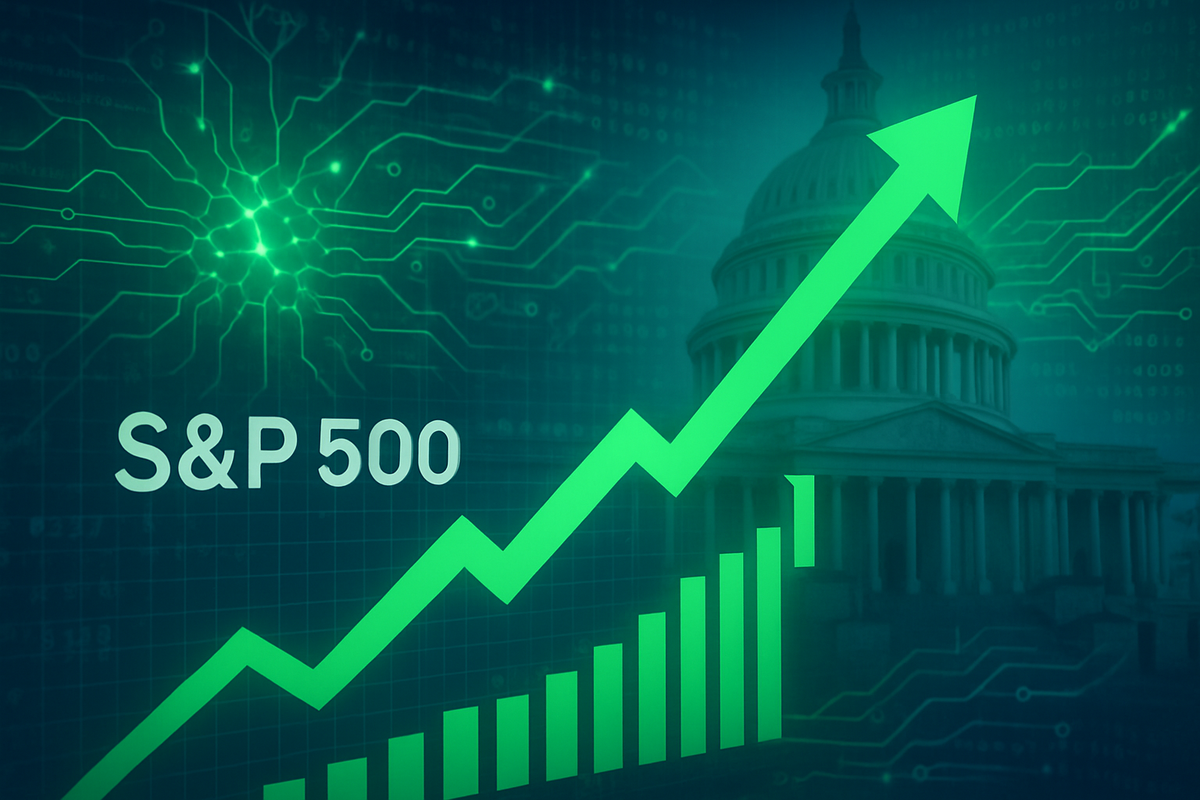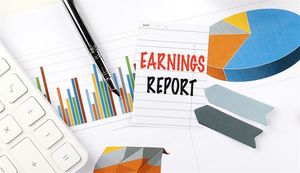
As the United States federal government enters its seventh day of a shutdown, failing to pass appropriations legislation for the 2026 fiscal year, a surprising narrative has emerged from the financial markets. Despite the gridlock in Washington, the S&P 500 has not only stalled but has defied expectations, recently soaring to new record highs. This unusual resilience is largely attributed to a fervent optimism surrounding artificial intelligence (AI) and a series of positive corporate announcements, overshadowing the economic uncertainties typically associated with a government halt.
The ongoing shutdown, which began on October 1, 2025, has already led to the furlough of approximately 900,000 federal employees, with another 700,000 continuing to work without pay. While the immediate implications include a halt in the release of crucial economic data and potential drags on GDP, the stock market appears to be looking past these temporary disruptions, focusing instead on technological advancements and corporate earnings.
The Unfolding Gridlock and Market's Unfazed Reaction
The current government shutdown, now in its seventh day as of October 7, 2025, stems from deep partisan disagreements over federal spending levels, foreign aid rescissions, and contentious health insurance subsidies, particularly the extension of Affordable Care Act tax credits. This failure by Congress to pass essential appropriations bills has brought significant portions of the federal government to a standstill, impacting a broad spectrum of services and operations.
Historically, government shutdowns have often introduced initial volatility into equity markets, prompting a cautious retreat among investors. However, this time, the S&P 500 has demonstrated an unexpected robustness. On October 7, 2025, the index recorded a live value of 6,740.29 USD, marking a rise of 0.36% over the past 24 hours and extending its winning streak to an impressive eighth consecutive session – its longest since May. This rally is primarily fueled by a surging enthusiasm for artificial intelligence technologies and positive corporate developments. Notable among these is a significant chip deal between Advanced Micro Devices (NASDAQ: AMD) and OpenAI, alongside Dell Technologies' (NYSE: DELL) raised growth estimates, both contributing to a "melt-up" scenario where markets climb despite underlying economic uncertainties. Key players in this political drama include members of Congress, the President, and the millions of federal employees and citizens directly affected by the cessation of government services.
Companies Navigating the Shutdown's Crosscurrents
The government shutdown creates a bifurcated landscape for public companies, with some facing headwinds while others, particularly in the tech sector, continue to thrive. Companies heavily reliant on federal contracts are likely to experience immediate negative impacts. Defense contractors, for instance, may see payment delays and disruptions to ongoing projects. While the research did not name specific defense contractors, companies like Lockheed Martin (NYSE: LMT) or Raytheon Technologies (NYSE: RTX) would typically be in this vulnerable category.
Conversely, the market's current momentum is being driven by the AI boom, benefiting technology giants. Advanced Micro Devices (NASDAQ: AMD), following its significant chip deal with OpenAI, stands as a clear winner, with investor confidence buoyed by its strategic positioning in the burgeoning AI hardware market. Similarly, Dell Technologies (NYSE: DELL) has seen its growth estimates raised, indicating strong performance despite the broader economic uncertainty. The resilience of these tech companies highlights a broader trend where innovation and sector-specific growth can insulate certain market segments from macro-political disruptions. Meanwhile, defensive sectors have historically shown resilience during shutdowns, although their outperformance may be short-lived. The healthcare sector has also experienced volatility, with recent gains tied to renewed optimism regarding the resolution of pricing disputes, suggesting that underlying industry-specific issues can sometimes overshadow broader political events.
Broader Implications and Historical Context
This unusual market reaction to a government shutdown offers a fascinating insight into broader industry trends, particularly the overwhelming influence of the AI revolution. The market's ability to shrug off significant political gridlock suggests that investors are currently prioritizing transformative technological growth over traditional economic indicators. This "AI-driven melt-up" could have ripple effects, potentially pushing valuations to unusually high levels across the tech sector and drawing capital away from more traditional industries that are more susceptible to government spending fluctuations.
Regulatory and policy implications are also significant. The delayed release of crucial economic data, such as employment reports and GDP figures, complicates the Federal Reserve's decision-making process. Despite this data vacuum, market expectations are factoring in a high probability (over 90%) of two additional interest rate cuts this year, particularly if the labor market shows further deterioration. This indicates that while the shutdown itself might not be panicking the market, its potential to weaken economic fundamentals could accelerate monetary policy adjustments. Historically, government shutdowns, while disruptive, have often been perceived by equity markets as temporary. The Congressional Budget Office (CBO) estimated that the 2018-2019 shutdown reduced Q4 2018 GDP growth by 0.1 percentage points, demonstrating a measurable but often contained economic drag. The current situation, however, is unique in that a powerful technological narrative is actively counteracting these traditional headwinds, creating a more complex and perhaps more fragile market environment.
What Comes Next: Scenarios and Adaptations
Looking ahead, the immediate future hinges on the duration and eventual resolution of the government shutdown. A prolonged shutdown could gradually erode consumer confidence and inflict more substantial economic damage, potentially challenging the market's current resilience. Companies heavily dependent on federal contracts will need to implement strategic pivots, such as diversifying their client base or securing alternative funding, to mitigate ongoing payment delays and operational disruptions.
In the short term, the market's fascination with AI is likely to continue driving valuations in the tech sector, presenting opportunities for investors in companies at the forefront of this technology. However, the risk of a "melt-up" scenario leading to overvalued assets remains a significant challenge. Long-term possibilities include a potential re-evaluation of market fundamentals if the economic impact of the shutdown becomes too pronounced, leading to a rotation out of growth stocks into more defensive plays. The Federal Reserve's response to any sustained economic weakness will also be a critical factor, with potential interest rate cuts offering a double-edged sword: supporting growth but also signaling underlying concerns. Market participants should prepare for scenarios ranging from a swift resolution with minimal long-term impact to an extended stalemate that could eventually dampen the current AI-fueled euphoria.
Comprehensive Wrap-up and Investor Outlook
The current market environment presents a fascinating dichotomy: a resilient S&P 500 reaching new highs, largely propelled by optimism in artificial intelligence, while the U.S. government remains in a politically charged shutdown. Key takeaways include the market's surprising ability to look beyond political gridlock, the significant influence of the AI sector, and the delayed economic data complicating policy decisions.
Moving forward, the market's trajectory will be a delicate balance between continued technological innovation and the potential economic drag of a prolonged government shutdown. Investors should assess the market's current "melt-up" with caution, considering the unusually high valuations in some sectors. While the historical precedent suggests that markets often recover from shutdowns, the unique blend of AI-driven exuberance and political paralysis demands careful monitoring. In the coming months, investors should watch for any signs of consumer confidence erosion, the Federal Reserve's response to economic data gaps, and, crucially, any progress towards ending the government shutdown. This content is intended for informational purposes only and is not financial advice.





